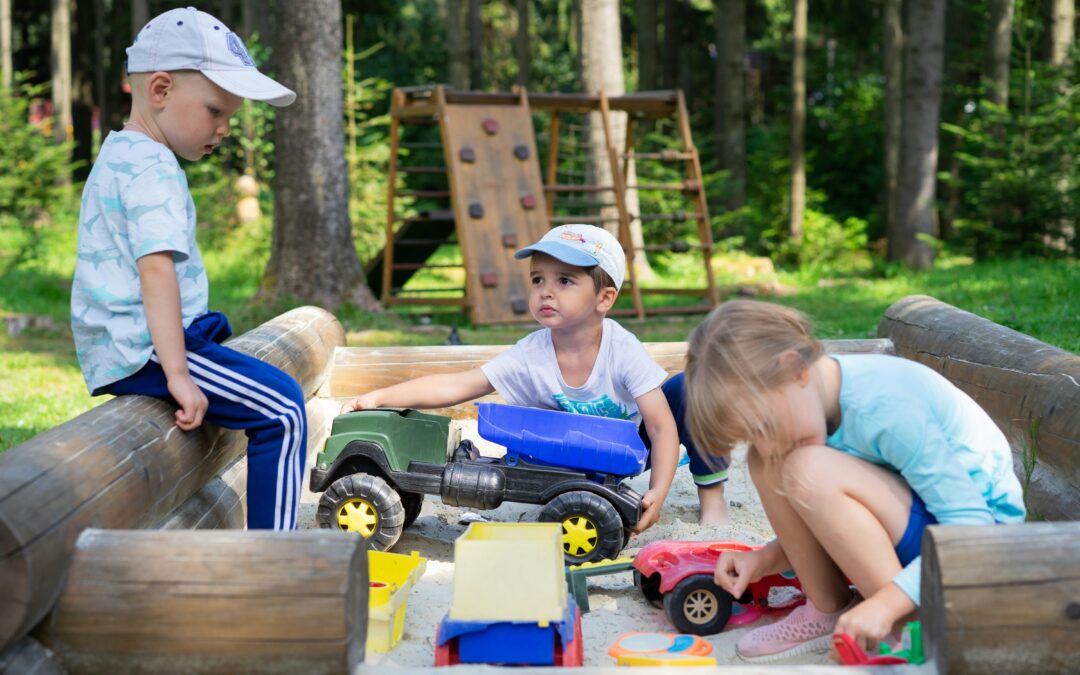As the summer approaches, kids will have more free time to play in shared spaces with peers. Playgrounds and other shared spaces can give children endless opportunities to learn and practice social skills. Here are some things to think about as summer approaches: What are your expectations for this summer? Does your child know the spoken and unspoken rules of the playground? How do you as a parent decide when to intervene and when to step back? How do you help them when they are struggling to understand social nuance?
Setting Expectations
Before diving into the summer whirlwind, it’s helpful to examine your expectations. What defines a “good summer” for your family? Are the activities you are planning aligned with your child’s interests and developmental needs? By aligning summer plans with your child’s preferences and skills, you create an environment where learning and growth feel natural.
Social dynamics are complex and not every child effortlessly picks up on the subtleties. Some may require explicit guidance and concrete examples to understand what is expected and appropriate in different settings.
It might also be helpful for parents to examine their expectations for social interactions and be curious about their ideas of what social interactions ‘should’ look like. Your child might have a different preference than you for how, when, and where they interact with other children.
Intervention and Support
At times, intervention may be necessary to facilitate positive interactions or address misunderstandings. Whether it’s deciphering a peer’s communication cues or advocating for our child’s needs in the face of judgment, parental guidance helps shape these formative experiences.
You may need to ensure your child understands both the spoken and unspoken rules of engagement. This includes taking turns, waiting patiently, and using equipment safely. Recognize that interpretations of appropriateness and safety may vary among parents, so respectful communication with others is key. What is safe and appropriate for one parent might be different to another parent (for example climbing up the slide or going down head first).
Targeted Social Skill Development
Practicing social skills isn’t a one-size-fits-all endeavor. Identify specific skills your child could benefit from practicing, whether it’s initiating conversations, sharing, or understanding personal boundaries. Utilize Behavioral Skills Training (BST) methods like instruction, modeling, role play, and feedback to teach these skills. Hypothetical scenarios or pretend play can create low-pressure environments for learning. For example, you may want to practice turn taking at home with a sibling before practicing at the park with a less familiar child.
Intervention vs. Independence
One of the toughest decisions for parents is knowing when to intervene and when to step back. Consider whose discomfort you’re addressing—is it your own or your child’s? Reflect on the types of mistakes you’re comfortable with your child making. Providing space for them to learn from their errors is essential for growth. Define your criteria for intervention based on safety, responsibility, and personal values.
As summer unfolds, embrace the opportunities for social growth and exploration. By setting realistic expectations, targeting specific social skills, and finding the balance between support and independence, you empower your child to navigate social interactions with confidence. Remember, each interaction is a chance for learning and connection.
We wish you all the best during the upcoming summer season!

